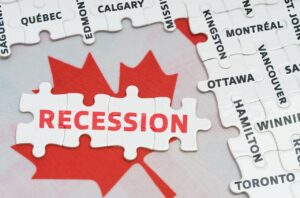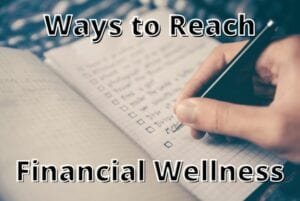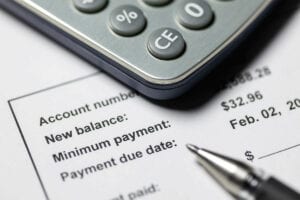Financially stability, what does that mean exactly? If you’re thinking “this is a topic for rich people” think again.
Being rich is not the same as being financially stable. There are so-called rich people who have houses three times the size of yours. They might have three cars, three yachts, and take three times more vacations abroad than you. They also might be three (or thirty-three) times more in debt than you. If they suddenly lose their job, they won’t be able to handle it. That is not financial stability.
What is financial Stability?
Financial stability, financial health, financial capability, whatever you call it, means that you feel confident with your personal finances. You know how to manage your money. You know that you can pay your bills. You’re not in debt. Your student loans don’t last forever. Your credit score is healthy. You have money saved for your future goals, and you have an emergency fund in case something unexpected happens. In other words, money isn’t something you worry about.
Why is it important to know if you’re financially stable or not?
Do you sometimes feel worried about life in general? Do you feel uneasy but don’t know exactly why? If your problems are money related, it helps to understand that. Recently, mental health experts have recognized that financial worries can cause insomnia, anxiety and depression.
If that’s you, you’re not alone. In a recent study, 38% of Canadians said that money was their biggest source of stress.
Help for Canadians
Kids in school don’t learn about things like interest rates or credit scores. Many hard-working adults have never learned the skill of financial planning. Financial stability is so important that the Canadian government has committed to a five-year plan (for the second time). It’s called the National Financial Literacy Strategy. The government wants to make sure that every Canadian is more “financially literate” by 2026.
The strategy will:
- Bring financial literacy courses to schools, for students at all levels.
- Make it easy for all Canadians to learn about finance through different methods, including online.
- Improve the financial system to help all Canadians.
The government wants to:
- Make it easier to get financial help
- Make financial concepts easier to understand
- Protect consumers from financial dangers
Through the National Financial Literacy Strategy, Canada wants its citizens to get better at:
- Managing debt
- Understanding how to navigate the financial marketplace
- Managing savings, and using debit cards wisely
- Gaining financial knowledge and confidence
If you’re financially stable, that’s something to feel proud of. Knowing you’re in good shape financially eases your mind. Financial stability is also a valuable skill that you can share with others.
It’s nothing to be ashamed of if you’re not financially stable. It’s an achievable goal. Just by learning a few key simple skills, you can be financially stable too.
Signs of financial stability
A life with financial stability looks something like this:
Bills get paid on time
You pay off your credit card in full every month. When finances are in order, there’s no need to hide bills in a drawer. You know when they’re due. There’s money set aside for them and you pay on time.
You have wiggle room to do and buy the things you enjoy
When you only spend money that you have – and avoid spending money you don’t have – that’s financial stability. The best part. you’ll end up with extra money in your bank accounts for the little rewards in life. A night at the movies, a bike for your child, or maybe a weekend getaway. There are so many ways to enjoy your hard-earned (and carefully budgeted) money!
You know you could handle a financial setback
A sudden layoff is devastating, but not if you’re prepared. A major car repair doesn’t need to be stressful. When you’re financially stable, you can handle it. You have money set aside in case of emergencies or financial setbacks.
Your net worth is going up
Net worth is the total of your financial assets, minus your liabilities. Add up how much money you have in savings and investments, plus the value of your home and car, minus your debts. If that amount is more than it was last year, congratulations. Your net worth is going up! You can even plan for retirement.
You’ve set up automated savings
Once or twice a month, a portion of your paycheque goes into your savings account.
Your debt load is easily manageable
Financial stability can only exist if your debt is shrinking (or if you have no debt). Owing more each month causes anxiety. Being financially stable means you don’t have that kind of stress.
You become a go-to person for financial advice
There’s a new profession called Financial Therapy.” When you’re financially stable, other people will admire or envy you. They might even ask you for financial advice. Are you an unofficial “financial therapist” to your friends and family?
You give to those less fortunate
Where do food banks get their food? Who gives to charity? People who are financially stable often give to the less fortunate. They do it because they can afford to. They also do it because it feels good to spread joy. Financial stability makes it easier to be joyful.
Once you’ve achieved financial stability: what’s next?
Do you have financial stability at this time in your life? If so, enjoy the feeling. You’ve earned it. Always think ahead. Plan how you will stay financially stable. Organize your personal finances so that your money is always growing. Manage debt so that it’s always shrinking, or disappears altogether. Control your finances so that they don’t control you.
That stress-free feeling is priceless.
Ask an expert how you can achieve financial stability. With help and guidance, you can pay off debt, manage your personal finance and meet your financial goals. Take the first step by reaching out today.




